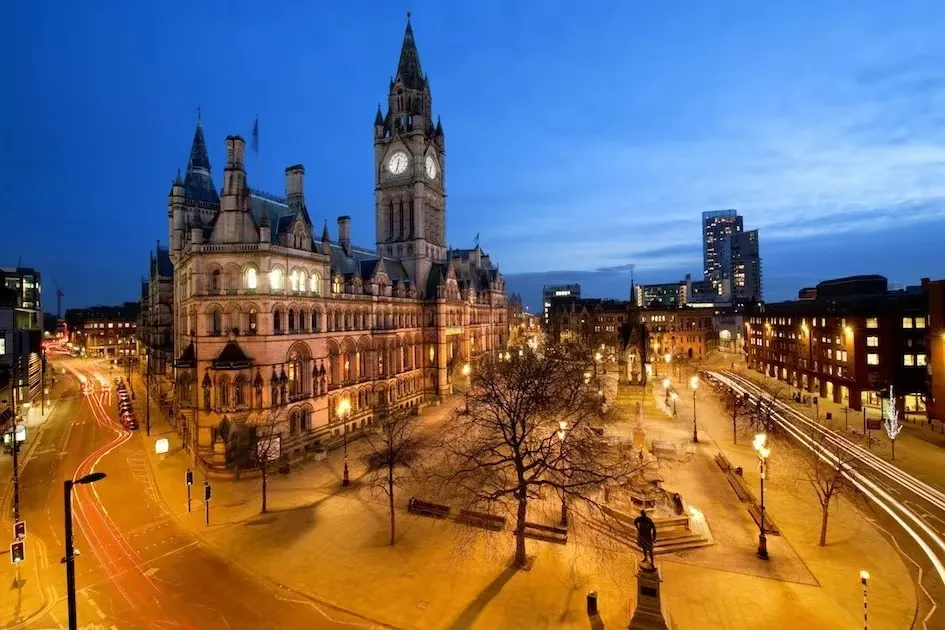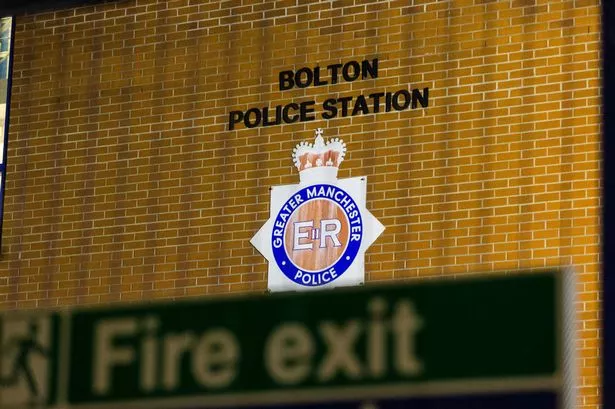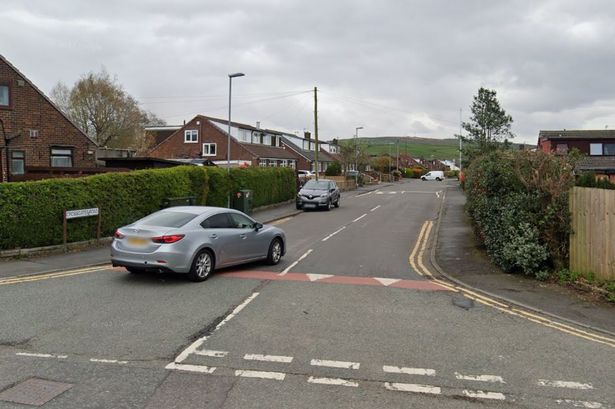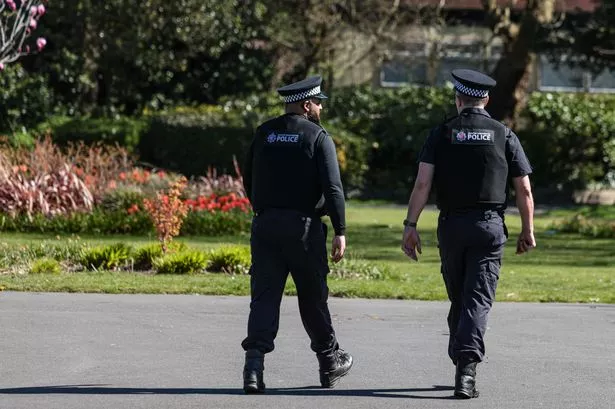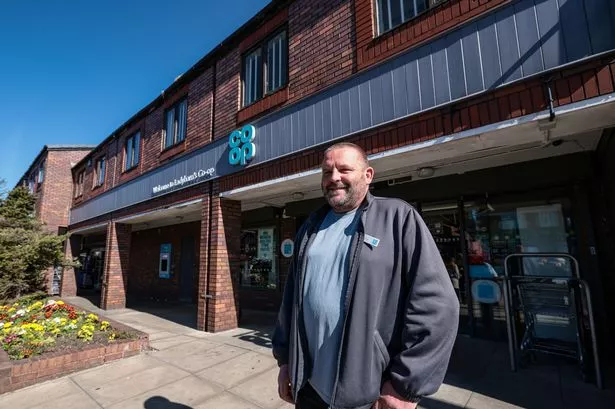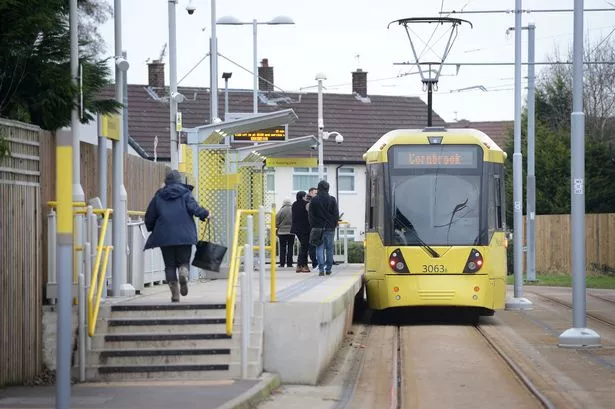Is Manchester a Good Place to Live?
Wondering if Manchester is a good place to live? This comprehensive guide uncovers the ins and outs of living in Manchester. Manchester boasts a wealth of history, attractions and fun things to do. Like any other city, it has its downsides. However, it also has a lot going for it. This passage is designed to help people decide whether this city aligns with their lifestyle and expectations.
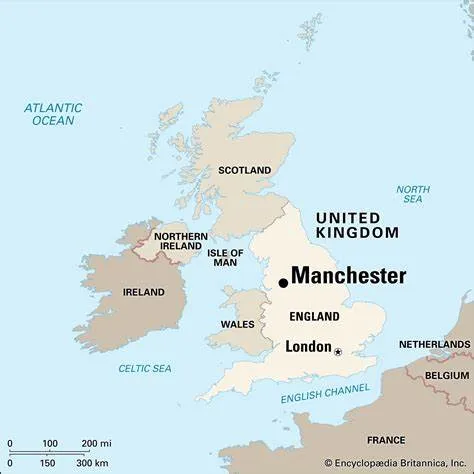
Contents:
1.Introduction
2.Environment & Weather
3.Economy- Employment, Salary and Costs
4.Public Infrastructure- Transport, Hospital, Education, Leisure and Culture.
5.Safety
1.Introduction of Greater Manchester
Greater Manchester is a ceremonial county in North West England. It borders Lancashire to the north, Derbyshire and West Yorkshire to the east, Cheshire to the south, and Merseyside to the west. Its largest settlement is the city of Manchester.
The county has an area of 1,277k㎡ and is highly urbanized, with a population of 2.8 million. Greater Manchester contains ten metropolitan boroughs: Manchester, Salford, Bolton, Bury, Oldham, Rochdale, Stockport, Tameside, Trafford and Wigan, the councils of which collaborate through Greater Manchester Combined Authority. The county was created on 1 April 1974 from parts of north-east Cheshire, south-east Lancashire, and a small part of the West Riding of Yorkshire.
What is now Greater Manchester was a largely rural area until the Industrial Revolution, when the region rapidly industrialised. The area's towns and cities became major centres for the manufacture of cotton textiles, aided by the exploitation of the Lancashire coalfield. The region was also an engineering and scientific centre, leading to achievements such as the first inter-city railway and Ernest Rutherford's pioneering work on nuclear fission. Since deindustrialisation in the mid-20th century the county has emerged as a major centre for services, media and digital industries, and is renowned for guitar and dance music and its football teams. (From Wikipedia)
2. Environment and Weather
Our natural environment is a precious natural asset that gives us clean water, clean air, food, timber, flood protection, recreation and much more.
Greater Manchester has a wealth of green space, waterways and rich biodiversity to connect with and enjoy. This valuable ‘natural capital’ and the benefits it provides need protecting and enhancing for people, wildlife and the environment.
However, mention Manchester to a Brit and rain is probably the first thing that'll come to mind. The following is more detailed weather condition during the year.
Summer: Thanks to its moderate climate and relatively temperate weather Manchester is the sort of place that attracts visitors year-round. Although England has a reputation for lots of rain, it's not as wet and dreary as people might think. Summer in Manchester is notably nice, with many locals spending time outdoors and in the city's many parks, because the days are long. There may be some cloudy days or rain, but for the most part expect pleasant days.
Fall: The temperature in Manchester starts to drop in September, and it begins to get chilly by the end of October and early November. October is Manchester's wettest month, so expect some rain and clouds.
Winter: It can be depressing thanks to the early sunset. But for those who don't mind less sunlight, December can also be an ideal month to visit thanks to the holiday spirit that pervades Manchester. There's always a chance of some rain, but it rarely snows.
Spring: it is a great time, with the temperature coming up and more hours of daylight, as well as flowers and trees blossoming all over the city. There's a chance of rain throughout the season, especially in April, but spring can also bring some sun.
(From https://www.tripsavvy.com/weather-and-climate-in-manchester-5076376 )
3.Economy
Greater Manchester is the economic centre of the North West region of England and is the largest sub-regional economy in the UK outside London and South East England. Greater Manchester represents more than £82.7 billion in GDP, more than Wales, Northern Ireland or North East England. Manchester city centre, the central business district of Greater Manchester, is a major centre of trade and commerce and provides Greater Manchester with a global identity, specialist activities and employment opportunities; similarly, the economy of the city centre is dependent upon the rest of the county for its population as an employment pool, skilled workforce and for its collective purchasing power. Manchester today is a centre of the arts, the media, higher education and commerce. In a poll of British business leaders published in 2006, Manchester was regarded as the best place in the UK to locate a business. It is the third most visited city in the United Kingdom by foreign visitors and is now often considered to be the second city of the UK.
3.1 Salary and Employment
Greater Manchester's salary growth rate is 7.93% per year based on changes in average salary between 2022 and 2023, which is 4.82% higher than the average salary growth rate in Greater Manchester over the past 10 years.
The average weekly hours worked in Greater Manchester is currently 37.5 hours. The average male works 38 hours per week and the average female works 37.4 hours per week.
At the 2001 UK census, there were 1,805,315 residents of Greater Manchester aged 16 to 74. The economic activity of these people was 40.3% in full-time employment, 11.3% in part-time employment, 6.7% self-employed, 3.5% unemployed, 5.1% students without jobs, 2.6% students with jobs, 13.0% retired, 6.1% looking after home or family, 7.8% permanently sick or disabled and 3.5% economically inactive for other reasons. Manchester is a dynamic metropolitan area and if you have expertise in industries such as finance, law, biotechnology, or digital media, you will find great opportunities if you plan on working in the city.
While in Manchester, salaries are noticeably lower than those in London and other major European cities, In Greater Manchester, the highest average wages are found in Manchester where the average salary is £37,175 and the lowest average wages are found in Tameside where the average salary is £27,904. The difference in average salary between the two areas is £9,271 - the average person in Manchester earns 33.2% more than the average person in Tameside.
(From https://www.varbes.com/salary/greater-manchester-salary )
3.2 Costs
In a survey, the living cost in Manchester is almost 40% cheaper than in London with housing 48% cheaper and transport 49% cheaper than London. Average price for one bed apartment in city centre with management charges if any but without council tax, gas electric water, etc, is now £1725 a month. Commodity price are fairly accurate for food, clothing, gym, etc…. with the exception being the cinema which is around £15 a ticket. Manchester’s yearly interest rate for housing is the highest in the UK and in 2024 it’s currently at 14.7 %. This is due in part to many business such as tv networks and banks moving their headquarters to Manchester or Salford from London which has inflated housing costs and made renting in the city centre and surrounding 5 mile radius unaffordable for the average Mancunian.
Summary of cost of living in Manchester, United Kingdom:
· A family of four estimated monthly costs are 27,493.8¥ (2,944.2£) without rent.
· A single person estimated monthly costs are 8,027.9¥ (859.7£) without rent.
· Manchester is 59.6% more expensive than Shanghai (without rent).
· Rent in Manchester is, on average, 28.0% higher than in Shanghai.
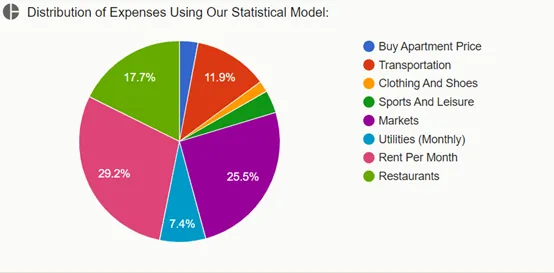
(From www.numbeo.com/cost-of-living/in/Manchester )
4.Public Infrastructure
4.1 Transport
Manchester has excellent public transport networks. It is home to a bus route that is thought to be the busiest in all of Europe. You will find getting around the city is relatively easy thanks to excellent bus and tram networks. Plus, bus fares remain competitive owing to the fact that there are a number of different service providers operating on similar routes.
In the past, Manchester was known for being notoriously inhospitable for cyclists. Roadwork, traffic and lack of cycle lanes were just some of the issues that made getting around difficult for cyclists in the city. In recent years, however, the city has invested considerable time and money into improving infrastructure to enable you to cycle safely.
4.2 Healthcare in Manchester
Living in Manchester, you will have access to good healthcare in the form of the NHS ( National Health Service ) at little to no cost. There are some excellent public hospitals in the city where the standard of care is world - class. While patients are required to pay for certain medications, the cost of these is often subsidized and therefore works out considerably cheaper.
However, waiting lists for certain treatments in the UK are long, It ' s possible to bypass these by exploring options in the private sector. Private healthcare in the UK is expensive, though, and if you have any ongoing health issues or chronic illnesses and plan on using private health services, you should invest in a comprehensive insurance policy.
4.3 Education
As is the case throughout the UK, British citizens and foreign nationals legally living in the UK are entitled to send their children to a government - funded school at little to no cost. That said, you are advised to do some serious research into your chosen school, as standards do vary quite dramatically in Manchester. The better - performing schools tend to be oversubscribed and priority goes to students in the local catchment area.
However, if you wish to have your child continue studying their home curriculum, you will have a hard time in Manchester as there are no schools in the city offering the curriculum of a foreign country, That said, there are several good private schools that teach the International Baccalaureate ( IB ) curriculum, which is standardized worldwide.
(From https://www.expatarrivals.com/europe/united-kingdom/manchester/pros-and-cons-moving-manchester )
4.4 Culture and Leisure
Manchester is renowned as a vibrant and dynamic city and attracts visitors from all over the country to its many attractions, shopping hubs and entertainment venues.
Manchester’s rich industrial history has left a legacy of industrial heritage sites and historical areas of interest ready to be explored; as well as offering modern alternatives, such as the Wheel of Manchester (the London Eye of the North), which provides visitors with a spectacular bird’s eye view of this impressive city.
It also has many cultural facilities, such as museums, art galleries and concert halls, and regularly hosts a variety of cultural events and festivals.
Outside the city, there is a further assortment of things to do and places to go. The Peak District is only a short drive away, and offers visitors and resident’s spectacular views and the opportunity to try a range of outdoor activities, from canoeing and climbing through to horse riding and walking for the adventurous among you.
In addition, Manchester has a wide variety of cuisines, ranging from traditional British cuisine to cuisines from around the world.
(From https://www.internations.org/manchester-expats/guide/living-short )
5. Safety
Manchester is a safe place to live. There are many expat communities here and some useful Facebook groups where people can ask for advice from other expats already living in Manchester. They can tell newcomer which are the safest places to live and the ones to avoid in the city and surrounding areas.
The city center, the university area, and Salford M3 are the best places to live in Manchester but here the cost of rent tends to be higher than in Manchester’s outskirts.
Overall, the city is safe and only a few neighborhoods outside the city center are considered dangerous.
(From https://www.spendlifetraveling.com/living-in-manchester/ )
